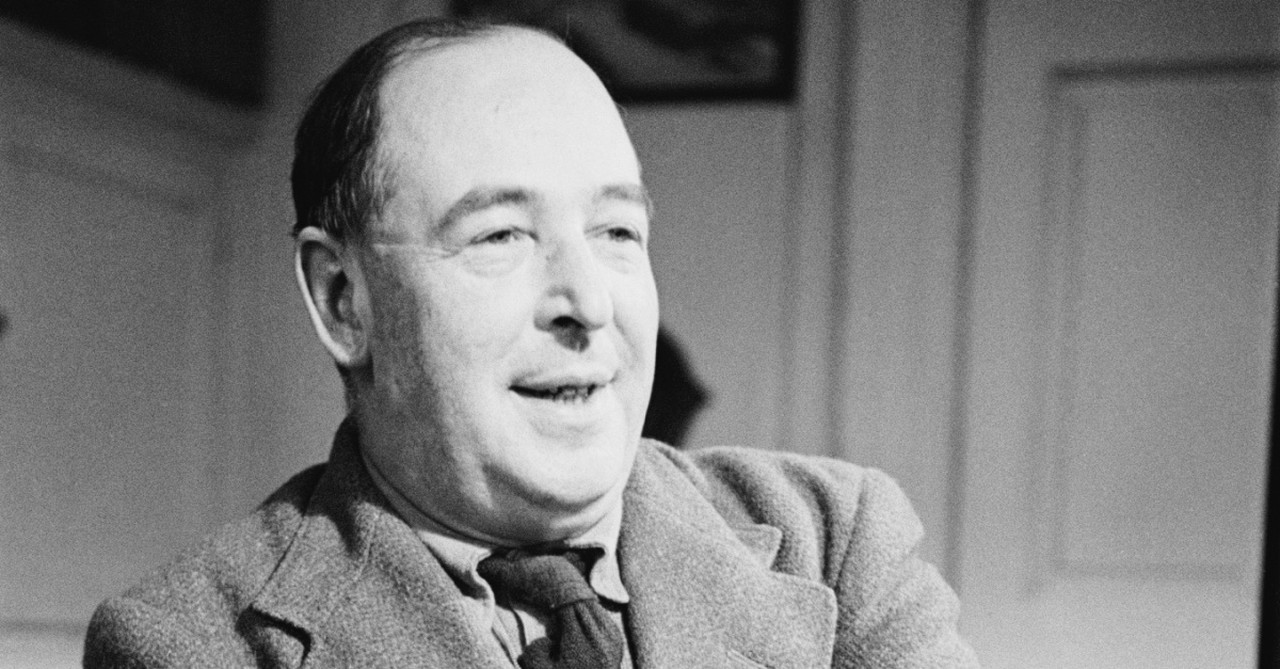
Mere Christianity has sold millions of copies every year since its original publication in 1952. The book has been well-received among Christians across denominational backgrounds and people of different worldviews.
So how did Lewis write this perennial bestseller?
Photo Credit: © Getty Images/Kriangsak Koopattanakij
What Led C.S. Lewis to Write Mere Christianity?

What Led C.S. Lewis to Write Mere Christianity?
SLIDE 1 OF 6
In 1941, C.S. Lewis was invited by BBC Director of Religious Broadcasting James Welch to give radio lectures on one of two topics: Christian ideas in modern literature or his layman’s view of Christianity. Lewis accepted the second option and did four radio talks between 1941 and 1944.
Welch discovered Lewis’ work by reading his book The Problem of Pain. The book was published in 1940 and was Lewis’ first work of Christian apologetics, dedicated to The Inklings. It was part of a Christian Challenge Series that sought to help people with challenging theological questions.
Like his friend Dorothy L. Sayers with her radio play The Man Born to Be King, Lewis presented his ideas on radio in a difficult time. World War II began in 1939, leading many British citizens to pay more attention to what they believed about God, death, and morality. Welch believed that Lewis would be able to help bring hope to people all around the world during the dark days of the war. He also appreciated Lewis’ ability to put complex theological and philosophical ideas into the vernacular so anyone could understand them.
Photo Credit: ©Getty Images/John Chillingworth/Stringer
How Did People Respond to Mere Christianity?

How Did People Respond to Mere Christianity?
SLIDE 2 OF 6
The public responded to Lewis’ broadcast talks was met with great enthusiasm. After the original broadcasts, the talks were published in three books: The Case for Christianity, Christian Behavior, and Beyond Personality. The three books were compiled into one book, Mere Christianity, published in 1952.
Though many of Lewis’ colleagues at Oxford did not approve of him being a popular theologian and Christian writer, Lewis rejected their discouragement. Lewis felt called by God to help people experience the hope of The Gospel no matter how it would affect his reputation at Oxford. In his book God in the Dock, Lewis stated that most of his books were evangelistic. Lewis was not a trained theologian but a Medieval and Renaissance literature scholar. His obedience to Christ, rich imagination, wide reading, and brilliant gift as a lucid communicator of ideas allowed him to fulfill his vocational calling. Mere Christianity is a great example of that.
Photo Credit: Alexis Brown/Unsplash
What Ideas Does C.S. Lewis Cover in Mere Christianity?

What Ideas Does C.S. Lewis Cover in Mere Christianity?
SLIDE 3 OF 6
Mere Christianity is a work of Christian apologetics about the core beliefs of Christianity that transcend the different denominations within the faith. In the book’s foreword, Lewis emphasizes not offering any one expression of Christianity as the objectively correct one. Instead, Lewis focuses on the faith’s central beliefs as stated in the Apostles Creed and The Book of Common Prayer. The Apostles Creed was written in the early church in the third century to affirm the core beliefs of Christianity to guard against different heresies. The Book of Common Prayer was compiled by the Archbishop of Canterbury, Thomas Cranmer, in 1549. It is an Anglican liturgical book based on Scripture and the Apostles Creed
Lewis’ argument begins by contrasting subjective morality with objective morality. He uses examples of good and evil not being mere preferences for different cultures but an objective reality that human beings on an everyday basis with the freedom to choose either. For historical evidence of this, Lewis compiled a list of common moralities all over the world in The Abolition of Man, which he references in Mere Christianity.
Lewis argues that this objective moral law points to a law maker. He then describes the differences between dualism, pantheism, and theism and challenges the view that Jesus of Nazareth was simply a good moral teacher. In Lewis’ view, Jesus is the same Jesus of faith and history and gives his Lord, Liar, or Lunatic trilemma argument. How does one simply view Jesus of Nazareth as a good moral teacher if he claims to be God? If He is not God, He is either a raving lunatic or a devil. Lewis got the idea for this argument from G.K. Chesterton’s The Everlasting Man.
In the remainder of Mere Christianity, Lewis discusses prayer, the trinity, sexual morality, the theological virtues of faith, hope, and love, and what happens to someone when they surrender their lives to Christ. By coming to a place of surrender and repenting, an individual’s heart and mind are transformed by the agape love of Christ, and they become a new creation, as St. Paul states in 2 Corinthians 3.
Photo Credit: ©Getty/gajus
How Does C.S. Lewis Define Mere Christianity?

How Does C.S. Lewis Define Mere Christianity?
SLIDE 4 OF 6
Lewis defined Mere Christianity as the central beliefs found in the Apostles Creed that unite all Christians from different denominations: belief in only one God, the Virgin Birth of Christ, His Crucifixion under Pontius Pilate, His Death, Resurrection, the forgiveness of sins, and offer of eternal life to all who call upon the name of Jesus.
In the book’s foreword, Lewis blatantly rejects the denominational divisions he saw within Christianity and elaborates on the importance of the unifying factor within the faith. The divisions within Christianity deeply troubled Lewis even before his conversion. Lewis sought to help confused, questioning people in the post-modern world understand what all Christians believe, no matter their denominational background.
Lewis got the term “mere Christianity” from Richard Baxter’s writings. Baxter was a seventeenth-century Protestant clergyman in the Church of England that wrote prolifically about unification within Christianity. Lewis found Baxter’s inclusive approach encouraging as he sought to do the same in his books on Christian apologetics.
This approach allowed Lewis to reach a wide audience, ranging from Roman Catholic to Methodist, Episcopalian, Anglican, Baptist, Greek Orthodox, to people of no faith. This wide reception gave Lewis a vast letter correspondence with people. Though it was rather tiring for Lewis to respond to every letter, he felt like it was his duty as he pursued his vocational calling as a professor, fantasy writer, and apologist for the Christian faith.
Photo Credit: ©iStock/Getty Images Plus/Jantanee Rungpranomkorn
How Does Mere Christianity Relate to Other C.S. Lewis Books?

How Does Mere Christianity Relate to Other C.S. Lewis Books?
SLIDE 5 OF 6
Lewis would discuss the same or similar ideas in several books, fiction and nonfiction.
In The Lion the Witch and The Wardrobe, Professor Digory Kirke challenges Peter and Susan about their sister Lucy being under a delusion by asking if she has ever told them a deliberate lie. The siblings answer that Lucy always tells the truth, even though they find her story about finding a magical world by going through a wardrobe to be highly improbable. Using a logical trilemma argument, Professor Kirke takes Lucy’s story seriously and conveys to Peter and Susan that Lucy is telling the truth. This part of the story correlates to Lewis’ trilemma argument in Mere Christianity about Jesus of Nazareth in the chapter titled “The Shocking Alternative.”
“The Shocking Alternative” also features Lewis arguing that God has revealed himself to humanity in different ways, particularly through the dying and rising god story that appears in many pre-Christian religions. In Surprised by Joy, Lewis writes about how his love for the old dying and rising god story in different world mythologies impacted his conversion from atheism to Christianity. This truth took him many years to understand because he was quite skeptical of the claims of Christianity and different religions.
Lewis recounts his experience of hearing a staunch atheist acquaintance remark that “the old dying and rising god story” had perhaps come true in the story of Christ. This remark was deeply unsettling to Lewis because the skeptic never converted to Christianity despite admitting the possibility it was true. The dying and rising god story later factored into Lewis’ conversation with Hugo Dyson and J.R.R. Tolkien, which convinced him Christianity was a “true myth” and that he could become a Christian.
Photo Credit: Mahendra Kumar/Unsplash
Great Books to Learn More about Mere Christianity

Great Books to Learn More about Mere Christianity
SLIDE 6 OF 6
While Mere Christianity is a great read by itself, sometimes it helps to have books that explain its context. The following books provide a great way to look different facets of the book and its composition.
1. C.S Lewis & Mere Christianity: The Crisis that Created a Classic by Paul McCusker
2. C.S.Lewis’s Mere Christianity: A Biography by George M. Marsden
3. Discussing Mere Christianity Bible Study Guide: Exploring the History, Meaning, and Relevance of C.S. Lewis’s Greatest Book by Devin Brown
4. Mere Christians: Inspiring Stories of Encounters with C.S. Lewis edited by Andrew Lazo and Mary Anne Femister
5. Mere Christianity: Discussion and Study Guide for the Book by C. S. Lewis by Dr. Joseph McRae Mellichamp
6. Discipleship with C.S. Lewis: A Guide to Mere Christianity for Small Groups and Mentoring Relationships by Joel Woodruff
Further Reading:
10 C.S. Lewis Books You Haven’t Read Yet
The Enduring Legacy of C. S. Lewis
5 Books by C.S. Lewis that Everyone Should Read
C.S. Lewis: An Adventure in Faith
Photo Credit: Sharon McCutcheon/Unsplash
Justin Wiggins is an author who works and lives in the primitive, majestic, beautiful mountains of North Carolina. He graduated with his Bachelor's in English Literature, with a focus on C.S. Lewis studies, from Montreat College in May 2018. His first book was Surprised by Agape, published by Grant Hudson of Clarendon House Publications. His second book, Surprised By Myth, was co-written with Grant Hudson and published in 2021. Many of his recent books (Marty & Irene, Tír na nÓg, Celtic Twilight, Celtic Song, Ragnarok, Celtic Dawn) are published by Steve Cawte of Impspired.
Wiggins has also had poems and other short pieces published by Clarendon House Publications, Sehnsucht: The C.S. Lewis Journal, and Sweetycat Press. Justin has a great zeal for life, work, community, writing, literature, art, pubs, bookstores, coffee shops, and for England, Scotland, and Ireland.
Originally published August 21, 2023.







